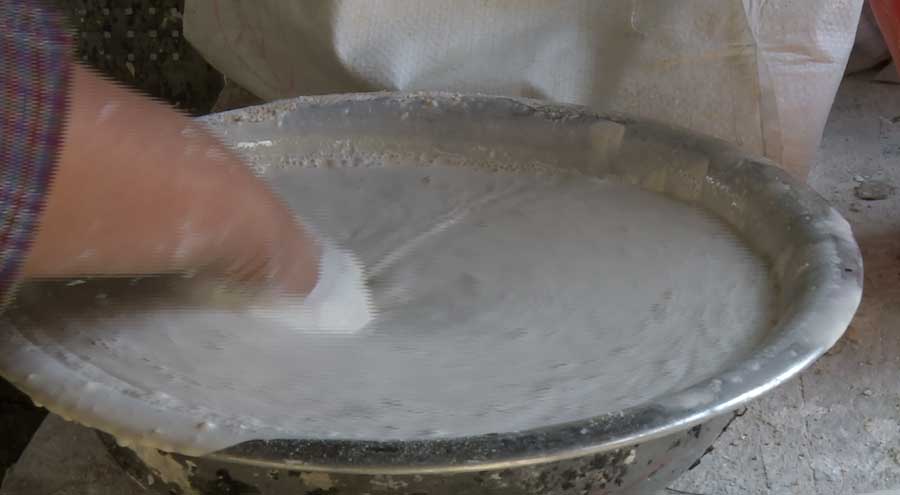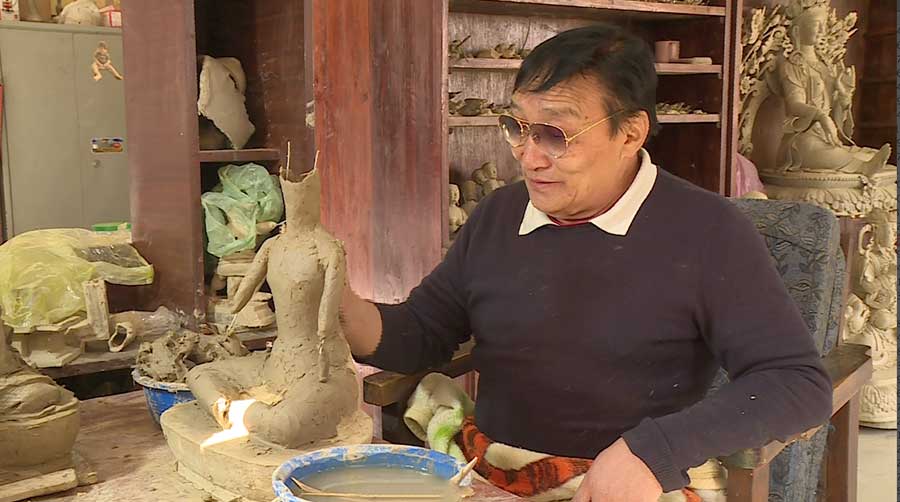
Casting statues from dental stone powder is becoming quite popular in the country. This is because people can cast many statues within a short duration which can be sold at an affordable price. However, this has affected the business of those sculpting statues from clay and wood.
The casting process involves mixing the dental stone powder with water until it turns into a liquid solution. Then the solution is poured into a statue of the required design.
 The mold is allowed to cool for about 40 minutes and the statue is ready for painting.
The mold is allowed to cool for about 40 minutes and the statue is ready for painting.
Since the process is easy, some of the people who are into such business said they can cast more than five statues in a day and it is also cheap which means getting customers is not a challenge.
“Normally we can make five to six statues in a day. If we start the work early, we can even make up to 10 statues. And it is cheaper,” said Rinchen Phuntsho, who casts statues at Babesa in Thimphu.
“Many customers choose to buy statues that are cast from dental powder as it is cheap and affordable,” said Tshewang Dorji, a shopkeeper who sells statues in Thimphu.
The process of casting statues from dental powder has also benefited the painters who get more statues to paint.
“Our business has benefitted as we get more orders to paint,” said Ugyen Dorji, a painter in Thimphu.
 However, this practice has affected those who sculpt statues from clay. And some of the sculptors said the tradition of sculpturing clay statue might become extinct.
However, this practice has affected those who sculpt statues from clay. And some of the sculptors said the tradition of sculpturing clay statue might become extinct.
“Our work is time-consuming and materials are expensive, so that’s why the statues are expensive. And if people opt for cheaper statues without realising the sacredness of clay statues, the tradition of clay statue sculpturing will gradually disappear,” said Nim Dorji, a sculptor at Babena in Thimphu.
Currently, there are around fifteen people in the country who are into the casting business.
Ngawang Tenzin,
Edited by Tshering Zam










